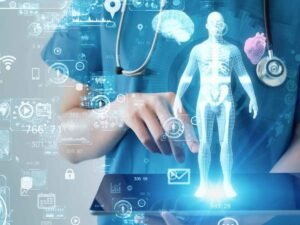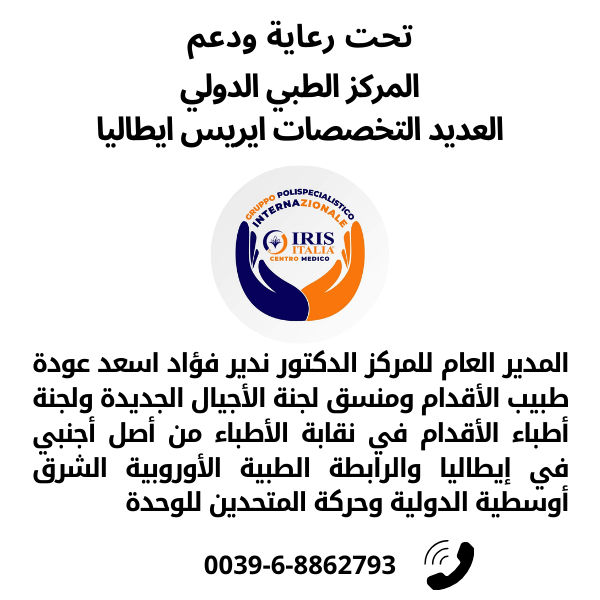Revolutionizing Medical Education: Harnessing Technology and Artificial Intelligence

Revolutionizing Medical Education: Harnessing Technology and Artificial Intelligence
AISC_As we navigate the complexities of the 21st century, medical education stands at a critical juncture. The exponential growth of technological advancements, artificial intelligence, and electronic health records has transformed the healthcare landscape. It is imperative that we reassess our approach to medical education, leveraging these innovations to cultivate a new generation of physicians equipped to thrive in this era of unprecedented change.
The traditional pedagogical model, rooted in didactic lectures and rote memorization, is no longer sufficient. The sheer volume of medical knowledge, coupled with the accelerating pace of scientific discovery, demands a paradigm shift. We must harness the power of technology and artificial intelligence to create personalized, adaptive, and immersive learning experiences that cater to the diverse needs and abilities of modern learners.
# Rethinking Medical Education: A Futurist Perspective
*Implementing AI-Driven Learning Platforms*
1. Implement AI-powered adaptive learning systems that adjust to individual learners’ pace, style, and knowledge gaps.
2. These platforms can analyze vast amounts of data, identifying areas where learners require additional support or review.
*Integrating Virtual and Augmented Reality*
1. Integrate immersive VR/AR experiences into medical education, allowing learners to engage with realistic, interactive simulations that mimic real-world clinical scenarios.
2. This technology can enhance skills training, reduce errors, and promote empathy and patient-centered care.
*Fostering Data-Driven Decision Making*
1. Incorporate data analytics and visualization tools into medical education, enabling learners to interpret complex data sets, identify patterns, and make informed decisions.
2. This skillset is essential for navigating the increasingly data-rich healthcare environment.
*Emphasizing Personalized Medicine and Genomics*
1. Integrate genomics and personalized medicine into medical education, preparing learners to interpret genetic data, tailor treatment plans, and communicate effectively with patients about genetic risks and benefits.
*Promoting Interprofessional Collaboration*
1. Foster interprofessional collaboration by incorporating team-based learning, simulation-based training, and case-based discussions that bring together learners from diverse healthcare disciplines.
*Implementing Microlearning and Spaced Education*
1. Implement microlearning modules and spaced education techniques to facilitate continuous learning, reduce cognitive overload, and promote long-term retention of complex medical concepts.
*Providing Mentorship and Coaching*
1. Pair learners with experienced mentors and coaches who can provide guidance, support, and feedback, helping learners navigate the complexities of medical practice and develop essential soft skills.
# Implementing Change: A Call to Action
To revolutionize medical education, we must adopt a futurist mindset, embracing innovation, experimentation, and continuous improvement. We urge medical educators, administrators, and policymakers to:
1. *Invest in Educational Technology*: Allocate resources to develop and implement cutting-edge educational technologies, including AI-powered learning platforms, VR/AR simulations, and data analytics tools.
2. *Foster Interprofessional Collaboration*: Encourage collaboration among healthcare professionals, educators, and industry partners to develop innovative educational programs and tools.
3. *Emphasize Continuous Learning*: Promote a culture of continuous learning, providing learners with opportunities for ongoing professional development, mentorship, and coaching.
4. *Rethink Assessment and Evaluation*: Develop novel assessment methods that evaluate learners’ competencies, skills, and attitudes, rather than solely relying on traditional multiple-choice exams.
By embracing these innovations and rethinking our approach to medical education, we can empower the next generation of physicians to thrive in a rapidly evolving healthcare landscape, providing high-quality, patient-centered care that leverages the latest advances in technology, science, and medicine.
Mohammed Salameh Al Tarawneh, MD
Assistant Professor of Internal Medicine and Infectious Diseases
Consultant, Internal Medicine and Infectious Diseases









